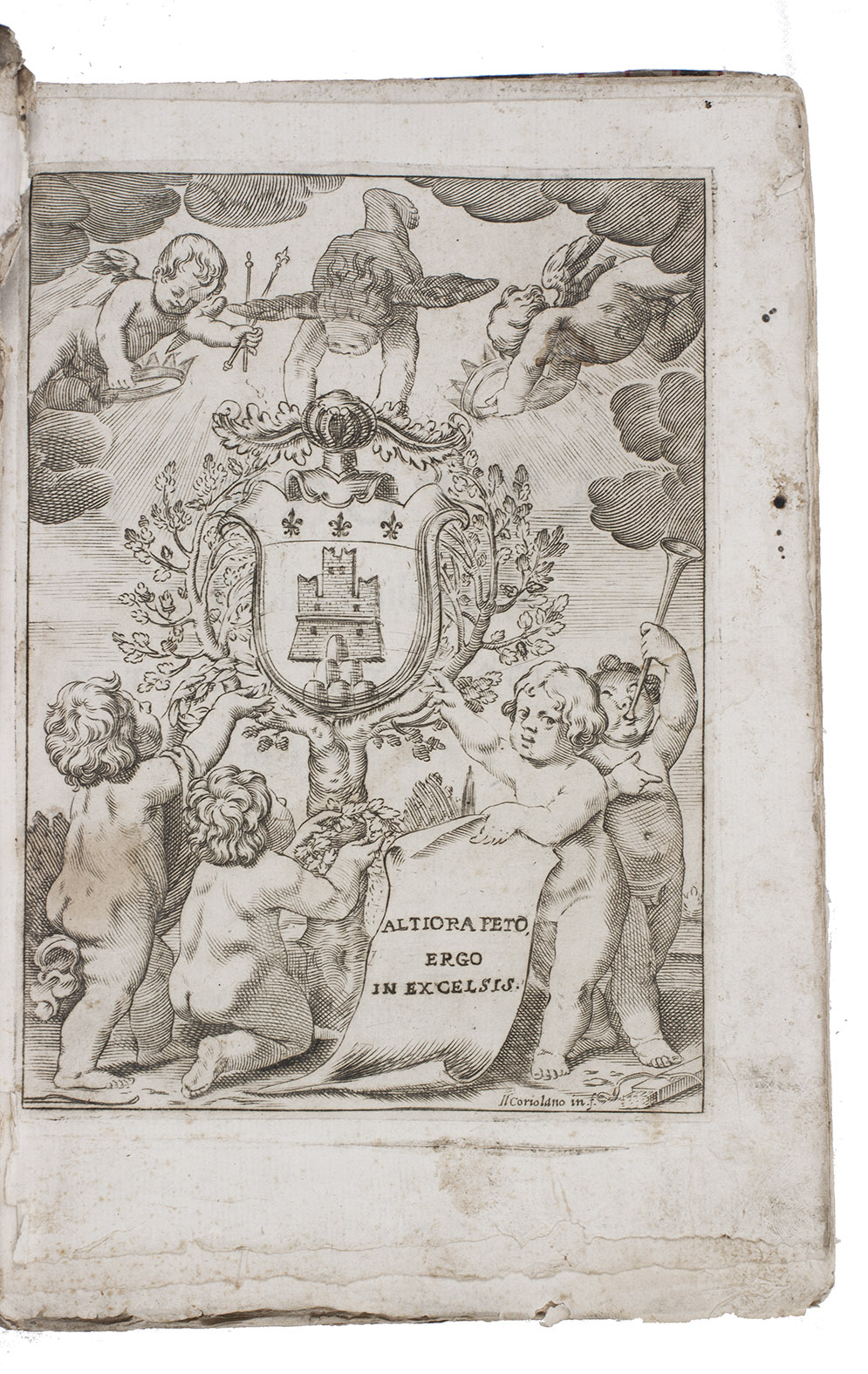MAZZOTTA, Benedetto.
De triplici philosophia naturali, astrologica, et minerali. In quibus differit cohaerenter de elementis, & variis mixtorum proprietatibus. ... Opus theol. philos. medicis, chymicis, & astrologis jucundum, ac simul utile.
Bologna, Giovanni Bapttista Ferroni, 1653. 4to. With an engraved heraldic and allegorical frontispiece drawn and engraved by Bartolomeo Coriolano with the arms of the dedicatee Hipolyto Cattaneo, a full-page engraving (with 7 figures) on an integral leaf, and 2 engraved illustrations and 2 woodcut diagrams in the text. Contemporary boards covered with a vellum leaf from a 16th-century(?) plain-chant manuscript antiphonary. Frontispiece plus [10], [2 blank], 148, “252” [= 272] pp.
€ 19,500
First and only edition of a detailed Latin treatise mixing astronomy, astrology, mineralogy, metallurgy, chemistry, alchemy and gemology, by Benedetto Mazzotta, professor of theology at the University of Bologna and a member of the Benedictine order. Mazzotta belonged to the old school of Bologna scientists, attributing powers to the traditional four elements, the planets and precious stones, and defending the geocentric model of the universe against Copernicus, whose heliocentric model (he notes) had been condemned by the Church. It "beautifully illustrates scientific knowledge on the threshold of modern science, which would increasingly be based on experiments rather than on philosophical speculation" (Schuh). The work seems to have escaped the attention of alchemists, scientists, historians and collectors, perhaps because it falls in the transition from alchemy and astrology to modern science. Of special interest is the engraved frontispiece by Bartolomeo Coriolano (1599-1676), a highly gifted artist and engraver. A great deal of alchemical symbolism has been read into it.
With early owners inscriptions and a bookplate. The book uses several paper stocks and one (in this copy in quires K-O and V-Z) has browned slightly and there are very minor browned patches or spots in the frontispiece and last 3 leaves, but the book is otherwise in very good condition and nearly untrimmed. Some of the sewing supports have broken at the hinges, the backstrip is damaged and there are some wormholes in the sides. A fascinating view of ideas about natural phenomena during the transition to modern scientific thought. ICCU NAPE007814 & RLZE024413 (6 copies); Riccardi I, 2, cols. 144-145; Schuh, Mineralogy (2007) II, pp. 1024-1025; Thorndike VII, pp. 643-646.
Related Subjects:






